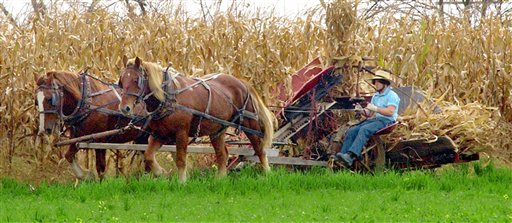In United States v. Lee, 455 U.S. 252 (1982), the Supreme Court ruled that religious beliefs do not preclude employers from the duty of contributing Social Security benefits on behalf of their employees.
Chief Justice Warren Burger wrote the opinion for a unanimous Court, interpreting existing Social Security laws and defending them against First Amendment challenges.
Amish farmer argues religious liberty in refusing to make Social Security payments
Lee, a farmer and carpenter who was a member of the Old Amish Order, had refused to make payments on behalf of his workers. He and fellow Amish believed that they had the personal responsibility to care for one another in sickness and old age and refused to accept Social Security benefits. In his opinion, Burger noted that he did not doubt Lee’s sincerity and acknowledged that compulsory participation in Social Security would violate his religious beliefs. However, this did not settle the issue on Lee’s behalf.
Social Security is the nation’s largest domestic program and is nationwide in scope. As such, the government’s interest in this program is “very high”; prior cases had established that states could limit religious liberty “to accomplish an overriding governmental interest.”
Supreme Court outlines problems with exempting Amish from tax because of beliefs
Burger observed that the Social Security law exempted self-employed individuals but did not extend this exemption to those, like Lee, who employed others. Whereas the Court had exempted the Amish from some educational requirements in Wisconsin v. Yoder (1972), it would be far more difficult to exempt them from Social Security taxes without exempting others from taxes for purposes — war, for example — with which they also disagreed. Congress could reasonably conclude that it was more difficult to exempt employers than it was to exempt self-employed workers.
In a concurring opinion, Justice John Paul Stevens argued that when the Court confronted cases where believers were objecting to laws of general applicability that had a disproportionate effect on them, it was their responsibility, rather than the state’s, to demonstrate “a unique reason for allowing him a special exemption.” He did not believe that Lee had met this burden.

